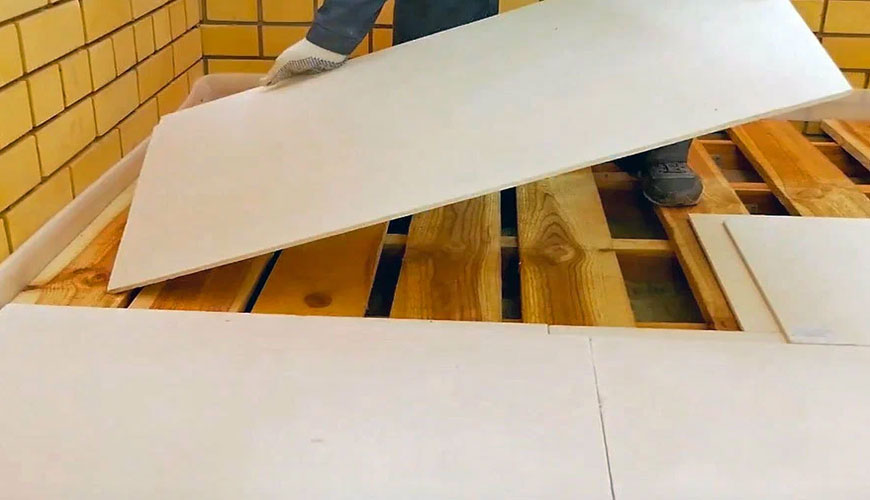

EUROLAB, with its state-of-the-art accredited laboratories and expert team, offers precise and rapid testing services within the scope of EN 13950 testing. In the EN 13950 standard, which is a European standard, the requirements for determining the properties and performance of thermal/acoustic insulation composite panels made of an insulation material laminated to plasterboards, whose main purpose is the internal insulation of walls (thermal and acoustic insulation), are explained and test methods are defined.

These panels are attached with adhesives or mechanical fastenings to vertical solid backgrounds and mechanical fastenings to wooden or metal frames with the drywall face exposed. The fixing and joining method has to ensure that the insulation material is not exposed in its normal application.
The EN 13950 standard covers the following performance features:
The performance of the products is ensured by the evaluation and verification of their stability according to the standard in question. In short, this standard includes additional technical features that are important for the use and acceptance of the product by the construction industry.
Heat and soundproof plasterboard is a combination of plasterboards and steel layers. Each layer increases mass and density, which are the most important aspects of good soundproofing materials. These make them an excellent choice for wall and ceiling soundproofing. While thermal insulation restricts heat transfer, acoustic insulation restricts sound transfer or reverberation of sound.
The combined product is thermal acoustic insulation that is effective in reducing both heat and noise transfer. Thermal insulation acts as a barrier against heat transfer and retains heat in the environment. The type of external wall insulation often depends on the amount of noise pollution outside. All thermal bulk insulation also reduces noise transmission somewhat, but acoustic insulation is designed specifically for sound deadening purposes.
EUROLAB assists manufacturers with EN 13950 test compliance. Our test experts, with their professional working mission and principles, provide you, our manufacturers and suppliers, the best service and controlled testing process in our laboratories. Thanks to these services, businesses receive more effective, high-performance and quality testing services and provide safe, fast and uninterrupted service to their customers.
To get an appointment, to get more detailed information or to request an evaluation, you can ask us to fill in our form and reach you.